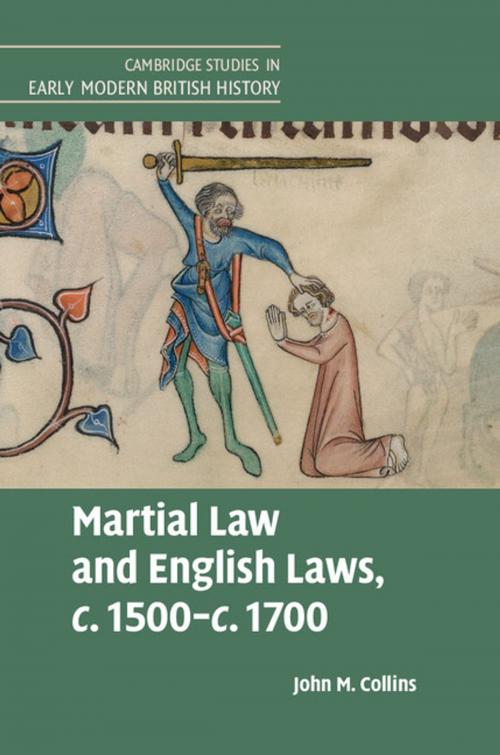| Author: | John M. Collins | ISBN: | 9781316653098 |
| Publisher: | Cambridge University Press | Publication: | May 19, 2016 |
| Imprint: | Cambridge University Press | Language: | English |
| Author: | John M. Collins |
| ISBN: | 9781316653098 |
| Publisher: | Cambridge University Press |
| Publication: | May 19, 2016 |
| Imprint: | Cambridge University Press |
| Language: | English |
John M. Collins presents the first comprehensive history of martial law in the early modern period. He argues that rather than being a state of exception from law, martial law was understood and practiced as one of the King's laws. Further, it was a vital component of both England's domestic and imperial legal order. It was used to quell rebellions during the Reformation, to subdue Ireland, to regulate English plantations like Jamestown, to punish spies and traitors in the English Civil War, and to build forts on Jamaica. Through outlining the history of martial law, Collins reinterprets English legal culture as dynamic, politicized, and creative, where jurists were inspired by past practices to generate new law rather than being restrained by it. This work asks that legal history once again be re-integrated into the cultural and political histories of early modern England and its empire.
John M. Collins presents the first comprehensive history of martial law in the early modern period. He argues that rather than being a state of exception from law, martial law was understood and practiced as one of the King's laws. Further, it was a vital component of both England's domestic and imperial legal order. It was used to quell rebellions during the Reformation, to subdue Ireland, to regulate English plantations like Jamestown, to punish spies and traitors in the English Civil War, and to build forts on Jamaica. Through outlining the history of martial law, Collins reinterprets English legal culture as dynamic, politicized, and creative, where jurists were inspired by past practices to generate new law rather than being restrained by it. This work asks that legal history once again be re-integrated into the cultural and political histories of early modern England and its empire.















